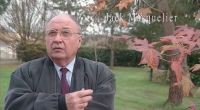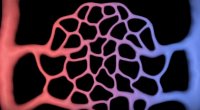
- The gist of this article
Not all extracts made from grape seeds are equal. It is erroneous, incorrect and misleading to equate uncharacterized and unidentified “grape seed extract” with Masquelier’s OPCs. Still, this is a common practice in the food supplements market that causes much confusion and uncertainty among consumers.
Table of contents
Do you also feel lacking essential nutrients ?
“The demand to live a healthier lifestyle is increasing, yet 4 in 5 people across Northern Europe do not know about the essential nutrients they have in their diet.” There is “a big knowledge gap when it comes to our understanding about food, with 40 per cent also admitting they feel lacking in some of the essentials.”
Manufacturers should provide truthful information
This is the outcome of a large survey conducted in 5 EU countries among 7.000 respondents during the end of 2018 – beginning of 2019 by YouGov, a British public opinion and data company. In 2014, YouGov had already reported that more than three quarters of (British) consumers believe that the responsibility to eat a healthy and balanced diet lies with themselves and that they do not want further government legislation. However, roughly the same percentage of consumers expect manufacturers to do more to explain what is in the products they sell.
Botanicals and the information gap
This problem does not only concern regular food products. It also concerns food supplements, especially food supplements containing so called “botanical” products marketed under the names of the plants from which they were made: Kava Kava, Echinacea, St. John’s Wort or Grape Seed. To the unsuspecting consumer, this may sound normal and perfectly acceptable. Yet, such botanical extracts are mostly sold without any reference to their method of production and a standard of quality. In most cases, even the trained observer is left guessing whether the manufacturer used the whole plant for extraction or used a certain part of the plant and, if so, which part. We aren’t informed about the origin of the extract and about the name of the actual manufacturer. We’re not told in which country the extract was made and according to what local standards it was produced.
The “grape seed extract” jungle
The wondrous world of “grape seed extract” presents a good example of such unsavory practices. Consumers of dietary supplements have been led to believe the term “grape seed extract” means something. Without a doubt, the “grape seed extract” market finds its origin in the pioneering work of professor Jack Masquelier. The problem is that not all extracts made from grape seeds are equal. Most certainly, it is erroneous, incorrect and misleading to equate uncharacterized and unidentified “grape seed extract” with Masquelier’s OPCs. Still, this is common practice in the food supplements market.
The term “grape seed extract” is meaningless
For Masquelier, this was a dreaded scenario because it is absolutely contrary to everything he stood for. For the discoverer of OPCs, it was a frightening thought that his scientific methods and accomplishments could have given rise to products that fail to comply with even the minimum of the requirements set for his OPCs compounds. There is no relevant pharmaceutical, nutritional, biochemical, or analytical definition of “grape seed extract,” nor is there one standardized manufacturing method of producing it. There are no commonly accepted, clear analytical “fingerprints” for qualifying extracts made from grape seeds. In fact, the term is so broad and so vague that it could mean anything. The term “grape seed extract” is, in one word, misleading.
Masquelier’s OPCs and product-specific benefits
Masquelier was convinced that we cannot do without chemistry, without analytical due diligence, without safety tests, and without clinical trials when it comes to making claims for products that people buy to improve or sustain their health. Ever since he made his first discoveries confirming the vast array of vascular benefits of his OPCs, Masquelier, his colleagues, and their coworkers went to great lengths to isolate, analyze, identify, qualify, and quantify OPCs, so that consumers looking for product-specific benefits would not be disappointed.
Making informed dietary choices !
In my book OPCs, Dr. Jack Masquelier’s Mark on Health, I present the wealth of product-specific information that was created by applying his standardized OPCs in ongoing scientific and clinical research that began many decades ago. Anyone who attributes the benefits of Masquelier’s OPCs to “grape seed extract” is either ill-informed or deliberately misleading consumers who are looking for reliable nutritional information to make informed choices about their diet and their health.






